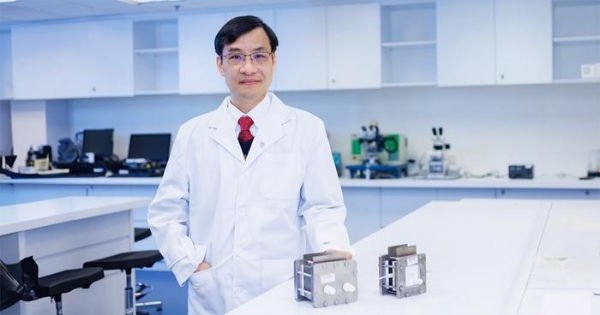Global warming continues to pose a threat to human society and the ecological systems, and carbon dioxide accounts for the largest proportion of the greenhouse gases that dominate climate warming. To combat climate change and move towards the goal of carbon neutrality, researchers from The Hong Kong Polytechnic University (PolyU) have developed a durable, highly selective and energy-efficient carbon dioxide (CO2) electroreduction system that can convert CO2 into ethylene for industrial purposes to provide an effective solution for reducing CO2 emissions. This research was recently published in Nature Energy and won a Gold Medal at the 48th International Exhibition of Inventions Geneva in Switzerland.
Ethylene (C2H4) is one of the most in-demand chemicals globally and is mainly used in the manufacture of polymers such as polyethylene, which, in turn, can be used to make plastics and chemical fibres commonly used in daily life. However, it is still mostly obtained from petrochemical sources and the production process involves the creation of a very significant carbon footprint.
Led by Prof. Daniel LAU, Chair Professor of Nanomaterials and Head of the Department of Applied Physics, the research team adopted the method of electrocatalytic CO2 reduction - using green electricity to convert carbon dioxide into ethylene, providing a more environmentally friendly alternative and stable ethylene production. The research team is working to promote this emerging technology to bring it closer to mass production, closing the carbon loop and ultimately achieving carbon neutrality.
Read More: The Hong Kong Polytechnic University
Photo Credit: © 2024 Research and Innovation Office, The Hong Kong Polytechnic University. All Rights Reserved.


